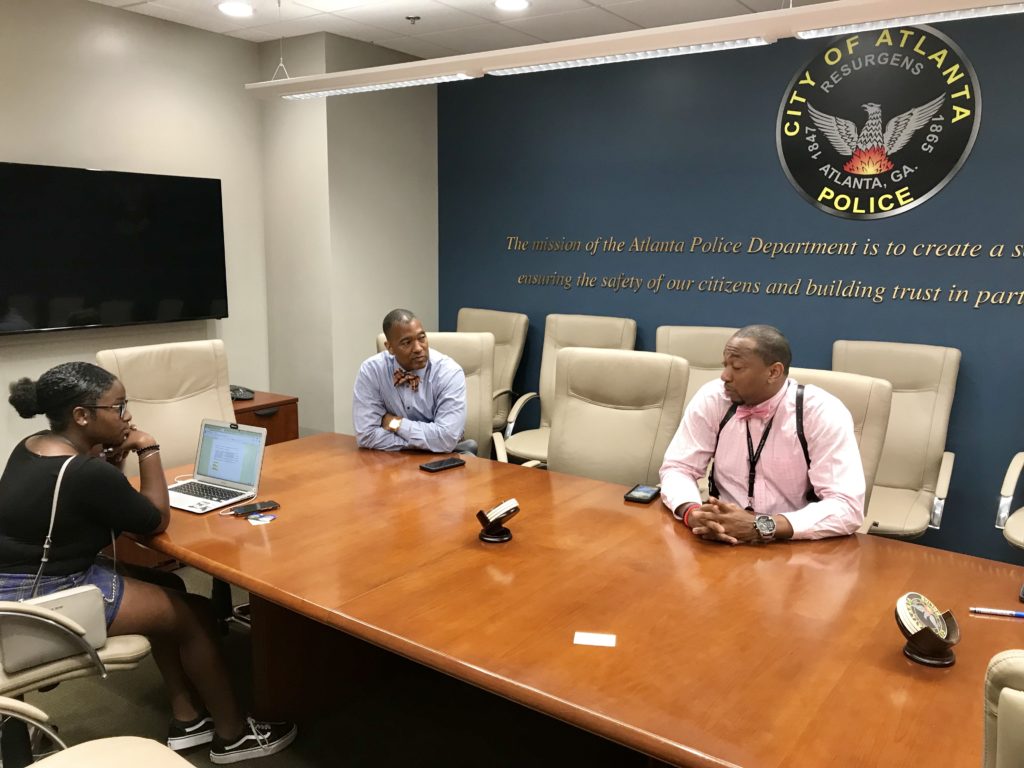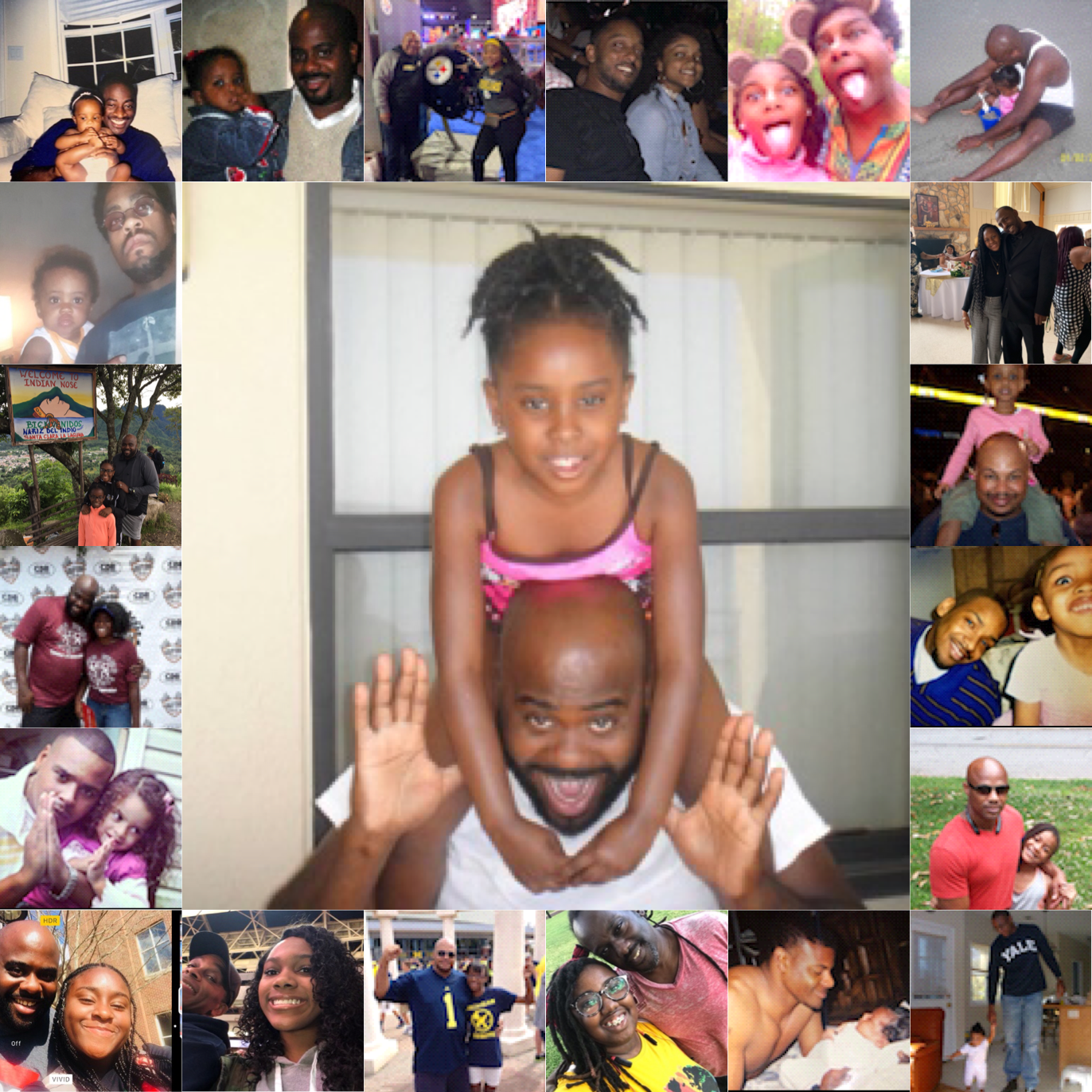Fear will drive you crazy, speed your heartbeat up, and it made me extremely concerned for my father one night this summer. Yes, I love my dad and mom with all my heart, but that night in July was about my dad. I know it sounds cringy to say but he’s literally the male version of me.
My mom and I got an Emergency SOS from my dad’s phone late at night and then he didn’t answer any calls or texts. He was in Alabama for work, a state that has one of the highest police shooting and brutality rates against black men, so imagine the fear that was running through my body as he sent out that Emergency SOS with his location.
According to a 2018 study published by the nonprofit American Journal of Public Health, police officers in the United States kill about three men a day, with black and Latino men at a much higher risk of being killed than their white counterparts.
According to the nonprofit Mapping Police Violence which tracks police-related violence in the U.S., black people are three times more likely to be killed by police than white people. Thirty percent of victims were unarmed compared to 21% of white victims. Where you live also matters, if you are black you are seven times more likely to be killed by police in Oklahoma than Georgia. Thirteen of the 100 largest U.S city police departments kill black men at higher rates than the U.S murder rate.
My heart was still beating. I didn’t know if my dad is OK and tears were falling from my eyes. Anything could have happened.
But this isn’t just something I think is a problem. African American teens fear for their lives daily.
“It Hurts. What’s Your Purpose?”
“I shouldn’t have to be scared, I shouldn’t have to drive around scared of being pulled over because you don’t know whether you’re going home or dying,” says Thomas Anderson 18, a member of the Clayton Youth Council, a Clayton County-based nonprofit that is studying housing instability in Clayton County, affecting students and their families. According to Anderson, he was thrown onto the concrete by a police officer for no reason after being asked to step out of a vehicle his brother was driving. He says this isn’t the only thing that happened to him. Anderson explains that he was complying, he was unarmed and he posed no threat.
During a recent community gathering of Clayton Youth Council teens and VOX Media Cafe reporters at VOX’s downtown Atlanta newsroom, I asked teens if they could ask one question to police officers what would it be?
“Why are you killing us?” asked Thomas Anderson. “Is it just because of our looks or is it because we may have nice things and you immediately profile us as being drug dealers or a threat?” ”
It hurts,” said Tykerria Porter-El, 18. “[I would ask] what’s your purpose?”
“Treat People How You Want to be Treated.”
When you enter the lobby of the Atlanta Police Department’s downtown headquarters on Peachtree Street, visitors are greeted by the following words on the wall: “The mission of the Atlanta Police Department is to create a safer Atlanta by reducing crime, ensuring the safety of our citizens and building trust in partnership with our community.”
I wanted to get the perspective from the police as well about their experiences interacting with the public because of every story has two sides. I was invited to the APD to interview two African-American men, Todd Coyt, the Assistant Chief of the Atlanta Police Department and Tyrone Dennis, an APD Gang Unit detective and investigator, who also helps to run the department’s Clippers and Cops community program dedicated to building a better relationship with police officers and their communities.
“As a police officer I can stop you and you could be the valedictorian of your school, or you could be a convicted felon with a thing full of dope and I only have a split second to try and figure that out,” explains Dennis, of what goes through his head when interacting with civilians during a traffic stop. “But at the same time, I was always taught to treat people how you want to be treated.”
Chief Coyt and Detective Dennis also stated there are rules and regulations they have to follow.
“We want to be safe, but we always try to be respectful,” explained Coyt. When asked if they could say anything to teens of color who are scared to interact with the police, they gave specific tips and ways to educate yourself, to stay calm, and make it home safe.
“For most young black males, you may be profiled into fitting a wrong description, and it’s unfortunate, but it’s the reality in which we live in,” said Dennis. “Like I tell most kids, be calm, try and be respectful, don’t be disrespectful, record [the interaction with police respectfully] and make it home safe. That’s the goal.”
Chief Coyt added, “Educate yourself. I’m not necessarily saying go to school, even though I am a big advocate for getting as much education in school as possible. The more educated you are, the better decisions you will find that you will make. The more educated you are, the better able you are to keep your emotions in check. A lot of times when people let their temper get the best of them, they are unaware of their rights.”
When asked if or how officers are disciplined when the department receives complaints about an officer using overly aggressive force with civilians or similar complaints, both Coyt and Dennis said civilians need to report the incident. Police officers need to know in order to make a change.
“Any time we get any allegation, we review it, it goes to the office of professional standards,” said Chief Coyt. “We have rules that categorize what that violation is. Depending on what that violation is will determine what the discipline will be.“

Practical tips for teens from the Atlanta Police:
1: Before you even start driving, know where your license and registration are, so if police ask for it, you have it. “As soon as I get pulled over, I roll my window down and lay both my hands out the window and sit there and that lets the officer know I’m not moving and I’m not reaching,” explains Detective Dennis. Even though you’ll probably be nervous, young people need to remember not to fidget or create a lot of movement inside the car since that makes law enforcement officers equally nervous.
2: Pull over to a well-lighted area and safe space, roll down windows, cut on your interior lights, and cut your music down or just cut the car off. If you feel as though it’s too dark, cut your hazard lights on, and then, at a low speed, go to the next location with more light.
3: If you need your license, insurance card or a registration in the glove box, or somewhere where you have to start moving around, you either want to do one of two things, depending on how comfortable you are.
- If it’s a place, where you think it won’t make that officer nervous, you pull it out, so by the time that officer comes up to the car, you can lay it on top of the dashboard, so your hands are already on the steering wheel and everything is out.
- You may want to leave it there and when the officer comes up, tell him, your license or registration is in the glove box, and ask if you can reach over and get it.
4: If you are walking down the street and get stopped, stay calm, don’t put your hands in your jacket or pants pocket. You could have anything in your pocket, so if you just keep your hands where they can be seen, that’s going to lower the anxiety of the officer. You can leave them down to your side and let the officer see the palms of your hand, “No matter how upset you are, try to keep a calm voice,” says Chief Coyt.
In My Case, Things Turned Out OK
In a 2015 CNN interview, iconic rapper KRS One (who’s written extensively about police brutality over the years, including his 1993 hit “Sound of Da Police”) said, “Police brutality is an oxymoron. The minute you become brutal you are no longer the police. We’re dealing with a federally authorized gang.” Four years later, KRS One’s words are still easily relatable and resonate today in 2019.
As for me, my heart isn’t racing anymore, my tears have dried, and I’m hugging my dad. In my case, things turned out OK. Turns out, my dad accidentally kept pressing the SOS button while sleeping that night in Alabama. But it could have turned out differently for me, as it has for many other fathers, brothers, cousins, and uncles in America.
Reporting this story, I’ve learned both perspectives of this ongoing issue, but I realize that racism and biases still lie within many police officers and within the people they serve. This needs to change in order to stop painting all police officers in the same way society wants to criminalize all people of color, because all lives matter, black lives matter.
The above photo collage was created by the author (who is featured in the center with her dad, Ronnie) and features photos of her friends with their dads.





Beautiful and informative as much as it is heart-wrenching and disturbing. Thank you for continuing the conversation and giving tips to your peers for handling police interaction.
👏🏽👏🏽👏🏽
Awesome article Black kids need to know what to do abd know there rights and its sad we have to walk around in a state of paranoia in the so called “Land of the free”
Still much needed ro be heard and healed. But the investigstive and sensitive journalism here makes our days and hurts so very real. This is real work toward change. Real writing toward ending the notions of conversations we don’t “have to have”. Thank you.